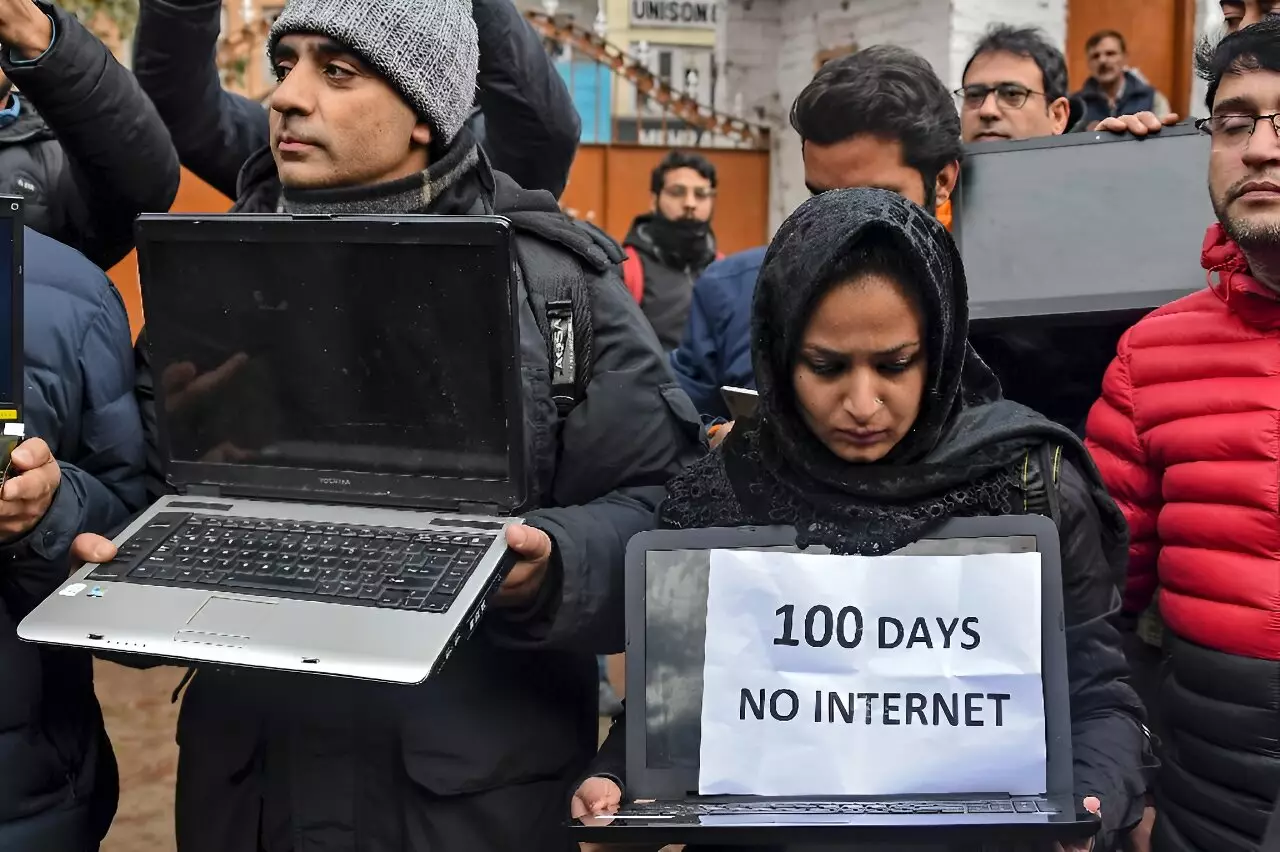India, with its cutting-edge technology and impressive digital infrastructure, has gained recognition as a leader in the tech world. However, alongside these advancements, there is an alarming trend of internet shutdowns when political unrest or sectarian violence arises. India has become notorious for its high number of internet shutdowns, with authorities relying on this extreme measure to combat disinformation. While these shutdowns may seem like a quick solution for maintaining law and order, they come at a significant cost to millions of people who depend on the internet for communication, information, and business.
Internet blackouts have become the go-to tool in the authorities’ toolkit, with shutdowns lasting anywhere from hours to days, and in some cases, even months. For instance, in Manipur state, over three million people have been without mobile internet since May due to clashes. This resulted in devastating consequences for families, as it took two months for Phijam Ibungobi to discover the tragic fate of his missing son. When the internet was briefly restored, he came across distressing images of his son’s corpse on social media. The emotional toll of such an experience is immeasurable.
According to the Internet Freedom Foundation, India has witnessed the highest number of internet shutdowns globally for the past five years. The authorities frequently cite protests and the need to prevent cheating during exams as the primary reasons for these blackouts. However, they fail to grasp the full consequences of their actions. Human Rights Watch highlights that internet shutdowns disproportionately impact the poorest segments of society, as they rely heavily on the government’s online social support systems. Last year alone, approximately 121 million individuals were affected by these shutdowns, compromising their access to essential services.
The economic impact of internet shutdowns is significant. For instance, in Indian-administered Kashmir, a 500-day blackout in 2019 and 2020 cost the local economy over $2.4 billion. The adverse effects are felt by individuals across various sectors, from market vendors who rely on online payment apps to larger businesses conducting their operations digitally. Mark Fanai, who works for a law firm in Manipur, found himself struggling to make ends meet during the blackout. He initially had to commute for hours to send emails and perform online transactions, but eventually, he had no choice but to relocate to a different state entirely.
Journalists also bear the brunt of internet shutdowns, as they face numerous challenges in reporting accurate information. Authorities often suspend internet services whenever there is a disturbance or conflict, hindering journalists from fulfilling their duty of reporting facts. Vinod Jire, a journalist in Maharashtra, had to leave the district in order to cover an incident due to the internet shutdown. This obstruction of the free flow of information goes against the principles of a functioning democracy, where the media plays a crucial role.
Governments argue that internet cuts are necessary to combat disinformation and prevent the spread of rumors on social media and messaging apps. However, Tanmay Singh, an advocate for internet access, emphasizes that disinformation can still spread offline. The most effective defense against misinformation is fact-checking and verification, which primarily occurs through the internet. Additionally, these shutdowns fail to address the root causes of conflict, merely slowing down the spread of hate rather than resolving underlying issues.
It is evident that internet shutdowns in India have severe humanitarian, economic, and democratic consequences. While authorities may view them as a necessary tool, the indiscriminate blocking of internet access disproportionately affects the most vulnerable members of society and impedes the flow of vital information. The Indian government must reevaluate its approach and seek alternative methods to address unrest and disinformation, ones that do not infringe upon the rights and well-being of its citizens. It is crucial to prioritize finding sustainable solutions that allow connectivity, while also nurturing a safe online environment for everyone.


Leave a Reply